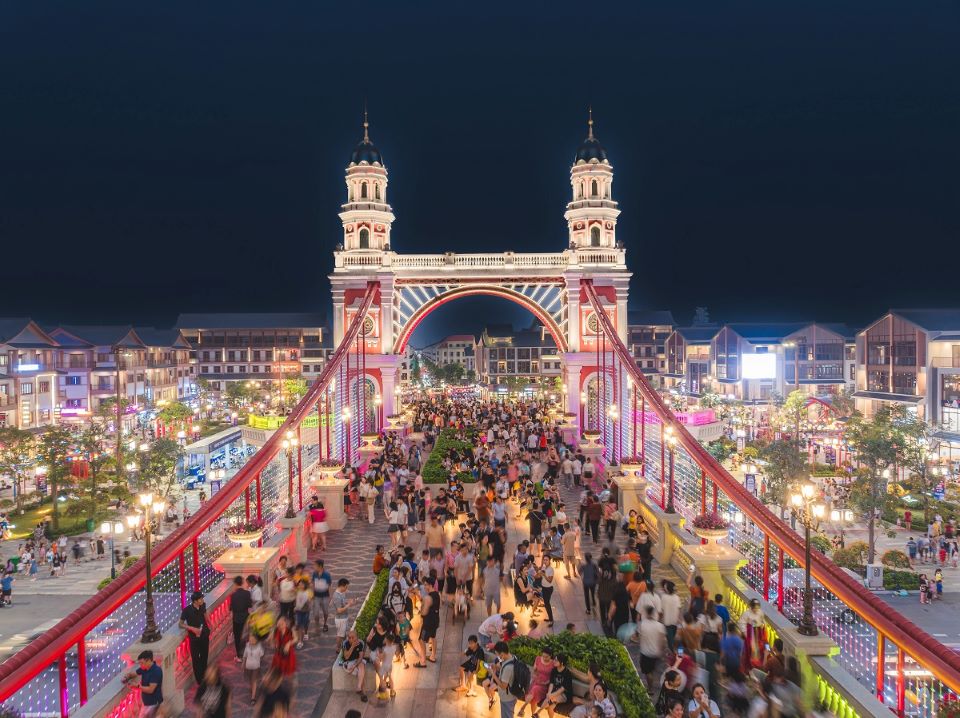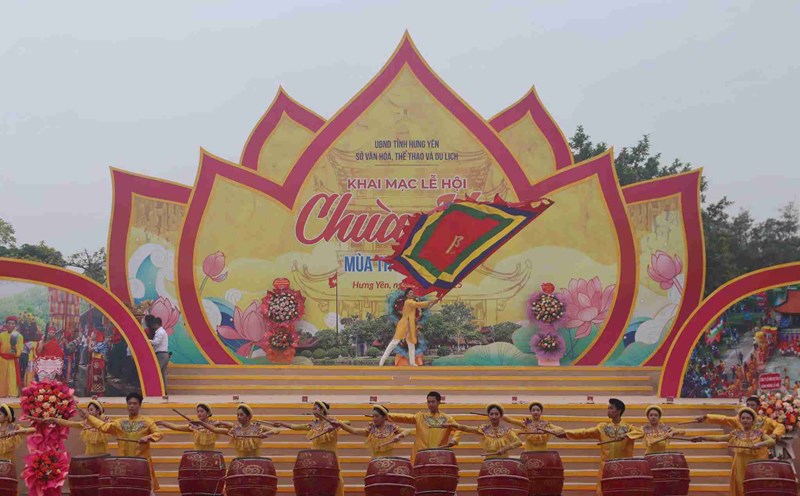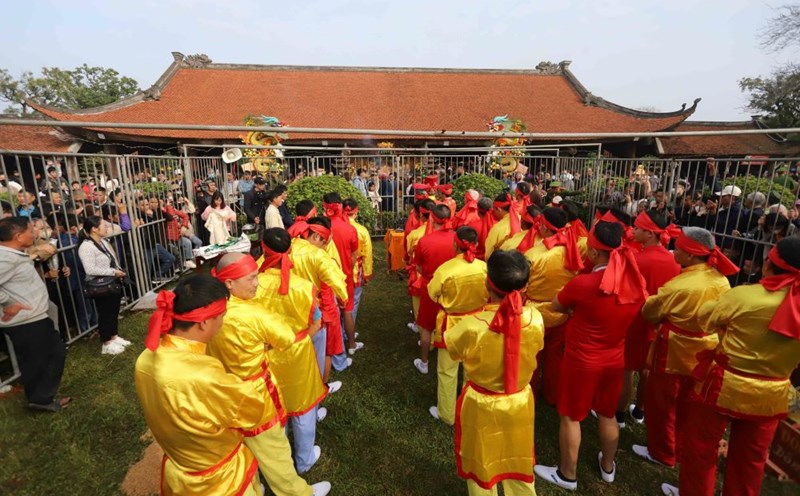Within the framework of the Hung Yen Province Culture, Sports and Tourism Week 2025, the Tourism Destination Promotion Conference attracted the participation of 80 domestic tourism and travel businesses. Here, many opinions pointed out the potential and proposed solutions to make Hung Yen tourism break through after the merger.
Rich treasure
According to Mr. Vu Manh Thang - Chairman of the Hung Yen Provincial Tourism Association, the locality has all the factors to develop comprehensive tourism. On the spiritual tourism map, Hung Yen owns a dense system of relics such as Pho Hien Special National Relic Site; Tomb and Temple of the Tran Kings; Keo Pagoda; Nom Pagoda; Dau An Temple; Da Hoa - Da Trach Temple; Dong Bang Temple...
In addition, there is a unique intangible cultural treasure trove including Cheo singing, ca Tru, troop drums, song lyrics, water puppetry.
Not only stopping at heritage, Hung Yen after the merger also has 54 km of coastline with wide beaches, natural reefs, long sand tides and a rare mangrove ecosystem in Thuy Hai, Thuy Xuan, Thuy Truong communes. This is considered a "natural gift" of great value for the development of marine tourism, eco-tourism and environmental research.
In parallel, the province also formed eco-tourism and weekend resort complexes such as Ecopark, Ocean Park 2 - 3; while maintaining a rich traditional craft village system: making Thon Cao incense, Ban soy sauce, Diem Dien fish sauce, Hoi weaving, Nam Cao silk weaving, Dong Xam silver carving, Long Thuong bronze casting, flower villages - ornamental plants...
The whole province currently has 3,563 relics, including 303 national relics, 6 special national relics, 29 national intangible cultural heritages and 10 national treasures. Along with that are hundreds of traditional festivals, long coastlines and typical cuisines such as longan lanterns, eel vermicelli, Nguyen village's fish cake, Tieu Quan chicken cake...
These values help Hung Yen shape advantages to develop spiritual tourism, sea, ecology - resorts, agricultural tourism and community tourism.

Shaping a new tourism brand
From the perspective of the inbound market, Ms. Dang Thi Tho - Director of Phoenix Voyages Branch, assessed that Hung Yen has many advantages but lacks connecting products on the moving axis. She suggested that the province should connect with Hanoi, Ninh Binh, Ha Long, Nam Dinh to create a 3-4 point daily journey.
Typical products such as mangrove forests, Dong Chau beaches or Keo pagoda architecture can become highlights if accompanied by international standard accommodation services and evening entertainment activities.
Representative of the UNESCO Hanoi Travel Club, Ms. Bui Thi Thu Hien suggested that Hung Yen should reshape the tourism brand after the merger; invest in a system of signs and destination identification; at the same time, promote the value of "the cradle of Cheo art" to create a difference when combining culture - sea - mangrove forest.
Mr. Nguyen Quy Phuong - Head of the Department of International Relations and Tourism Promotion (Vietnam National Administration of Tourism) emphasized that the province needs to "turn resources into real tourism products". According to him, infrastructure, services, human resources and inter-regional and inter-provincial linkages must be deployed synchronously; at the same time, focus on building a new tourism brand associated with a long-term promotion strategy.
Hung Yen's promotional work has recently had a clear change through communication, cultural and social events and tourism fairs. Proactive linkage with provinces and cities has helped the image of Hung Yen tourism become more widely known.
A representative of the Department of Culture, Sports and Tourism of Hung Yen province said that the province is implementing many specific solutions: completing destination infrastructure, upgrading accommodation facilities, standardizing products; enhancing digital promotion; developing craft village experience tours; connecting key relic chains; building night markets and night tourism services.
Hung Yen aims to make tourism an important economic sector by 2030, contributing positively to socio-economic growth.






